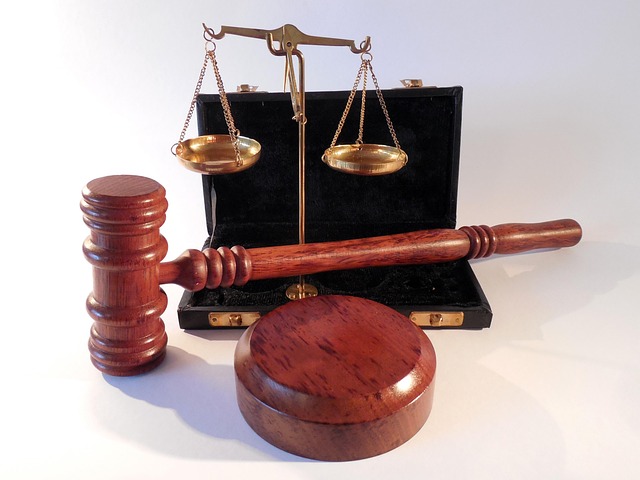RF Regulatory Agency investigations balance public safety with due process rights. Understanding how due process affects sentencing is crucial for fairness and legal compliance. Evidence, transparency, and strategic defense are key in navigating these complex cases, ensuring both accountability and protection from unfounded claims. How Due Process Affects Sentencing guides outcomes, protecting rights while upholding regulations.
“RF Regulatory Agency Investigations: Navigating the Complexities of Legal Procedures
This article explores the intricate world of RF (Radio Frequency) regulatory inquiries, delving into the rights and responsibilities involved. ‘Understanding RF Regulatory Agency Investigations’ sets the foundation by explaining the process. We then dissect ‘Due Process: A Legal Framework for Fair Sentencing’, revealing its pivotal role in shaping outcomes.
Furthermore, ‘Investigatory Powers and Their Limitations’ examines the scope of agency authority. The impact of evidence on sentencing decisions is a critical aspect covered in detail. Finally, we explore strategies for defense, highlighting challenges and potential paths to mitigate consequences, especially focusing on how due process affects sentencing.”
- Understanding RF Regulatory Agency Investigations
- Due Process: A Legal Framework for Fair Sentencing
- Investigatory Powers and Their Limitations
- The Impact of Evidence on Sentencing Decisions
- Challenges and Strategies in Defense Against Investigations
Understanding RF Regulatory Agency Investigations

RF Regulatory Agency Investigations play a critical role in ensuring compliance with wireless communication standards and safety protocols. These investigations are triggered by suspected violations of regulations governing radio frequency (RF) devices, spectrum usage, or industry-specific practices. Understanding the process is crucial for businesses and individuals alike, especially as it pertains to due process rights.
The impact of due process on sentencing in RF regulatory cases cannot be understated. It ensures fairness and provides a framework where individuals can challenge allegations. In the event of an investigation, those facing potential sanctions should be aware of their legal rights, including the right to representation, notice of accusations, and the opportunity to present evidence. This process is designed to protect against arbitrary decisions, with sentencing based on substantial evidence and adherence to established procedures, ultimately mitigating potential negative impacts on businesses, especially when avoiding indictment through proactive compliance measures for his clients.
Due Process: A Legal Framework for Fair Sentencing

In RF Regulatory Agency investigations, ensuring fair sentencing is paramount, and this is where due process plays a pivotal role. Due process guarantees individuals the right to a hearing before being subjected to any significant deprivation, including criminal penalties. This legal framework mandates that agencies provide notice of the alleged violation, offer an opportunity to be heard, and allow for the presentation of evidence and cross-examination of witnesses—a cornerstone of justice.
When it comes to how due process affects sentencing, especially in cases involving white collar defense, across the country, courts consistently emphasize the importance of these procedural safeguards. A complete dismissal of all charges is not uncommon if agencies fail to adhere to due process standards. This ensures that individuals accused of regulatory violations are treated fairly, protecting their rights and maintaining the integrity of the legal system.
Investigatory Powers and Their Limitations

RF Regulatory Agency investigations come with inherent investigatory powers designed to ensure compliance with broadcasting and communication laws. However, these powers are subject to strict limitations, particularly regarding due process rights. The Fourth Amendment protects citizens from unreasonable searches and seizures, a principle that applies to RF agency investigations. This means investigators must obtain warrants based on probable cause, ensuring they have substantial evidence before entering a business or seizing equipment.
How due process affects sentencing is crucial in these cases. Suspects have the right to legal representation, confronting accusers, and presenting their own evidence. Winning challenging defense verdicts hinges on understanding these rights and leveraging them during investigations. A robust general criminal defense strategy can protect individuals from unfair prosecution, ensuring that RF Regulatory Agency actions remain within legal boundaries and respect the respective business’s due process rights.
The Impact of Evidence on Sentencing Decisions

The strength of evidence plays a pivotal role in RF Regulatory Agency investigations, significantly influencing sentencing decisions when it comes to white collar and economic crimes. In these intricate cases, where individuals or entities may face severe consequences, the principles of due process become paramount. The right to a fair trial, guaranteed by law, ensures that any judgment is based on substantial and admissible evidence, free from procedural irregularities.
During investigations, agencies collect and gather evidence across all stages of the process—from initial assessments to enforcement actions. This includes documentation, financial records, witness testimonies, and expert opinions. How due process affects sentencing is evident in the requirement for transparent and rigorous handling of this evidence. The court must be convinced that the evidence not only supports but also proves beyond a reasonable doubt the guilt of the accused, particularly in general criminal defense scenarios. This ensures that justice is served without compromising the integrity of the legal system.
Challenges and Strategies in Defense Against Investigations

Navigating RF Regulatory Agency investigations presents a complex challenge for individuals and entities alike. The meticulous nature of these inquiries demands a strategic approach to defend against potential allegations, especially considering the intricate legal frameworks involved. One pivotal aspect that influences the outcome is how due process affects sentencing – a principle designed to safeguard rights during all stages of the investigative and enforcement process.
Implementing robust general criminal defense mechanisms is essential. This includes thorough documentation, transparent communication with regulatory bodies, and adhering strictly to applicable laws. The support of experienced legal counsel well-versed in these matters can significantly enhance advocacy efforts. Furthermore, understanding the unique dynamics within philanthropic and political communities, which often find themselves under scrutiny, necessitates tailored strategies that balance accountability with protection against baseless accusations.
RF Regulatory Agency investigations are meticulously structured under a framework of due process, ensuring fairness throughout. Understanding these processes is paramount for all involved. While investigatory powers are extensive, they must adhere to strict legal boundaries. Evidence plays a pivotal role in sentencing decisions, necessitating a deep dive into the handling and admissibility of information. Both defendants and agencies must navigate challenges strategically, with defense strategies focusing on protecting rights guaranteed by due process. Ultimately, the balance between regulatory enforceability and individual liberties hinges on how due process affects sentencing, making every step—from investigation to resolution—crucial.






